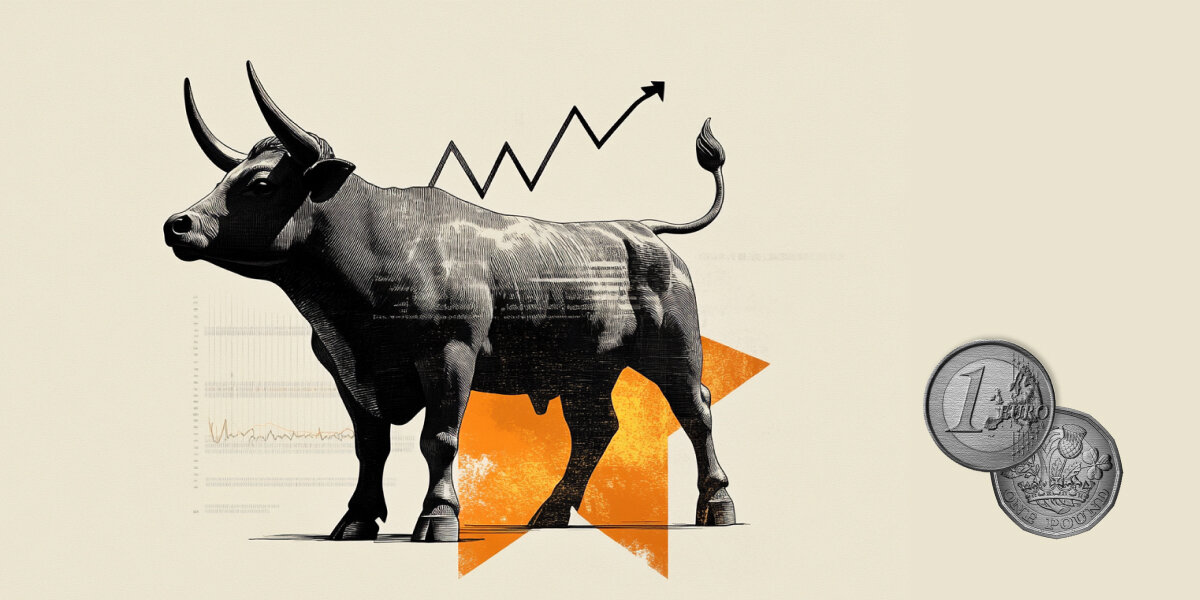EUR/GBP holds below 0.8350 ahead of ECB’s Lagarde speech
- EUR/GBP weakens to near 0.8335 in Thursday’s early European session.
- Traders expect the ECB to deliver rate cuts twice more to around 2% by December.
- Odds of a BoE rate cut strengthen as UK inflation eased to 2.8%.

The EUR/GBP cross remains on the defensive around 0.8335 during the early European session on Thursday. The Euro (EUR) weakens against the Pound Sterling (GBP) amid the uncertainty surrounding US President Donald Trump's tariff policies and growing expectations that the European Central Bank (ECB) would cut interest rates again. Traders will take more cues from the ECB's President Lagarde speech later on Thursday.
The European Union's trade commissioner, Maros Sefcovic, met with Trump's top trade officials on Tuesday to try to avoid steep US tariffs on EU goods next week, but the outcome was unclear. Investors will closely monitor the developments surrounding Trump’s trade policies. The easing fears of trade tensions could help limit the EUR’s losses.
According to LSEG data, traders expect the ECB to cut rates twice more to around 2% by December. They then price a small chance of a rate hike by September 2026. ECB Governing Council Francois Villeroy de Galhau said late Tuesday that there is still room to lower interest rates further, and the 2.5% deposit rate could fall to 2% by the end of the summer.
The UK inflation slowed more than expected in February, boosting the odds of the Bank of England (BoE) cutting interest rates in May. This, in turn, might drag the GBP lower and create a tailwind for the cross.
The headline CPI rose 2.8% YoY in February, compared to 3.0% in January, the Office for National Statistics reported Wednesday. This reading came in softer than the 2.9% expected. The Core CPI, which excludes the volatile prices of food and energy, climbed 3.5% YoY in February versus 3.7% prior, below the market consensus of 3.6%.
Euro FAQs
The Euro is the currency for the 19 European Union countries that belong to the Eurozone. It is the second most heavily traded currency in the world behind the US Dollar. In 2022, it accounted for 31% of all foreign exchange transactions, with an average daily turnover of over $2.2 trillion a day. EUR/USD is the most heavily traded currency pair in the world, accounting for an estimated 30% off all transactions, followed by EUR/JPY (4%), EUR/GBP (3%) and EUR/AUD (2%).
The European Central Bank (ECB) in Frankfurt, Germany, is the reserve bank for the Eurozone. The ECB sets interest rates and manages monetary policy. The ECB’s primary mandate is to maintain price stability, which means either controlling inflation or stimulating growth. Its primary tool is the raising or lowering of interest rates. Relatively high interest rates – or the expectation of higher rates – will usually benefit the Euro and vice versa. The ECB Governing Council makes monetary policy decisions at meetings held eight times a year. Decisions are made by heads of the Eurozone national banks and six permanent members, including the President of the ECB, Christine Lagarde.
Eurozone inflation data, measured by the Harmonized Index of Consumer Prices (HICP), is an important econometric for the Euro. If inflation rises more than expected, especially if above the ECB’s 2% target, it obliges the ECB to raise interest rates to bring it back under control. Relatively high interest rates compared to its counterparts will usually benefit the Euro, as it makes the region more attractive as a place for global investors to park their money.
Data releases gauge the health of the economy and can impact on the Euro. Indicators such as GDP, Manufacturing and Services PMIs, employment, and consumer sentiment surveys can all influence the direction of the single currency. A strong economy is good for the Euro. Not only does it attract more foreign investment but it may encourage the ECB to put up interest rates, which will directly strengthen the Euro. Otherwise, if economic data is weak, the Euro is likely to fall. Economic data for the four largest economies in the euro area (Germany, France, Italy and Spain) are especially significant, as they account for 75% of the Eurozone’s economy.
Another significant data release for the Euro is the Trade Balance. This indicator measures the difference between what a country earns from its exports and what it spends on imports over a given period. If a country produces highly sought after exports then its currency will gain in value purely from the extra demand created from foreign buyers seeking to purchase these goods. Therefore, a positive net Trade Balance strengthens a currency and vice versa for a negative balance.
BRANDED CONTENT
Finding the right broker for your trading strategy is essential, especially when specific features make all the difference. Explore our selection of top brokers, each offering unique advantages to match your needs.
Author

Lallalit Srijandorn
FXStreet
Lallalit Srijandorn is a Parisian at heart. She has lived in France since 2019 and now becomes a digital entrepreneur based in Paris and Bangkok.

















